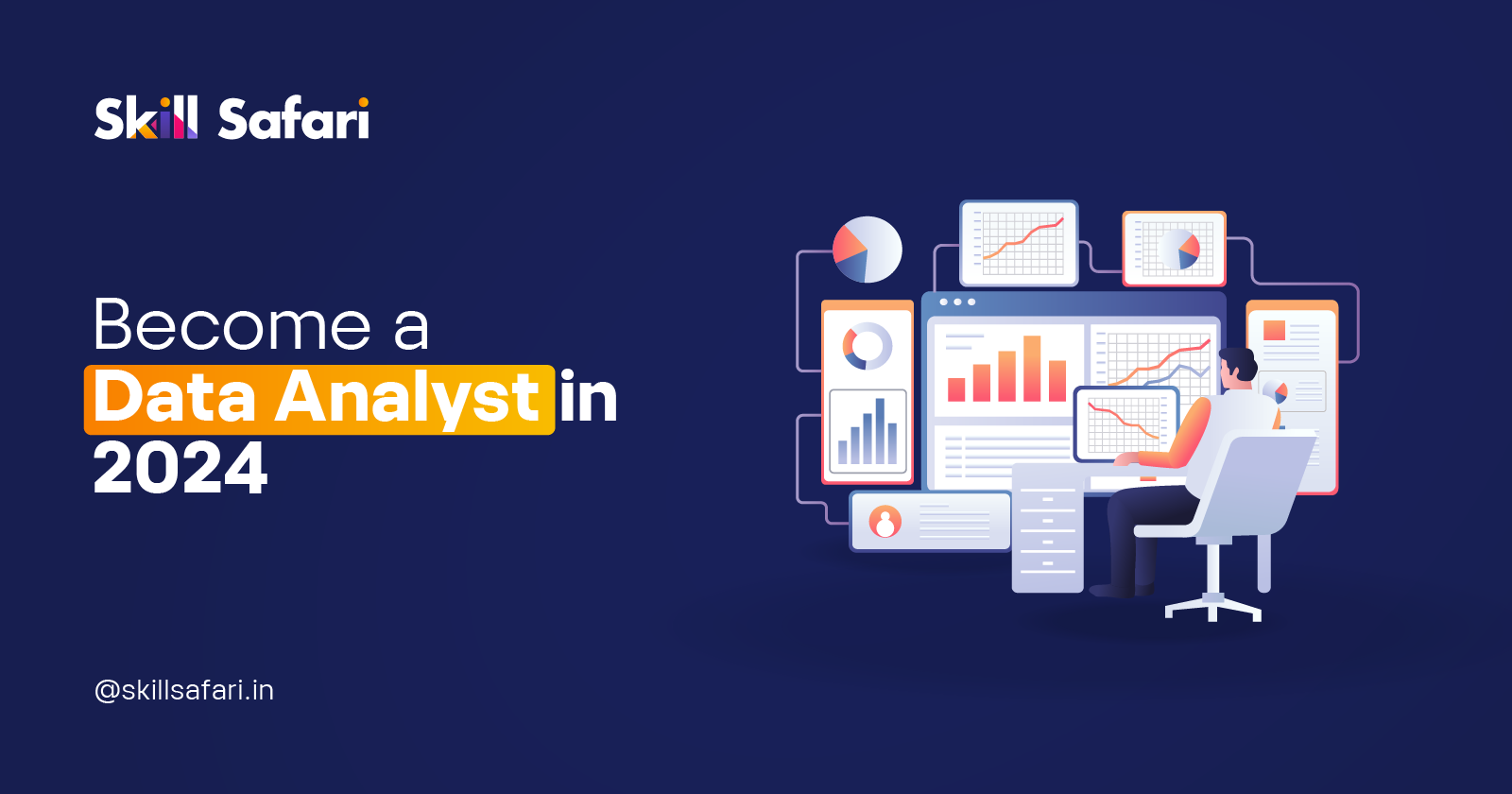Become a Data Analyst in 2024
 Arun R
Arun R
Data is no longer just a collection of numbers in today's fast-paced, information-driven world; it is now a potent tool that guides decision-making and shapes the future. Data analytics, a discipline that combines statistical analysis and technological know-how, has gained notoriety as a critical engine of innovation across industries. In this blog post, we explore how to become a data analyst in 2024.
What is Data Analytics?
The term "data analytics" refers to reviewing, purifying, transforming, and modelling data to produce significant revelations that support wise decision-making. The goal is to find hidden patterns, trends, correlations, and anomalies within data sets by utilizing various techniques, algorithms, and tools. Data analytics' primary objective is to convert unstructured data into practical knowledge that aids in solving complex issues, spotting opportunities, streamlining procedures, and making accurate business predictions.
Why Data Analytics Matters?
Data analytics has come to be recognised as the compass that leads organisations through the vast ocean of information in a time when every action leaves a digital trail. Large and complex data sets can be analyzed using statistical techniques and cutting-edge algorithms, allowing businesses to uncover insights previously lost in the noise. With the help of these insights, businesses can take data-driven actions that increase productivity, enhance customer experiences, lower costs, and boost competition.
How to Become a Data Analyst:
Becoming a proficient data analyst requires a systematic learning process that encompasses a mix of technical skills, analytical thinking, and domain knowledge.
Foundations in Statistics and Mathematics:
Start by laying a solid mathematical and statistical foundation. Your analytical process will be built on ideas like probability, linear algebra, and inferential statistics.
Learn Programming Languages:
Gain proficiency in programming languages like Python or R. These languages are widely used in data analysis due to their robust libraries and frameworks designed for handling and analyzing data.
Data Manipulation and Cleaning:
Master the art of data manipulation and cleaning. Real-world data is often messy, and being able to preprocess and clean it is crucial for accurate analysis.
Data Visualization:
Develop skills in data visualization to communicate your findings effectively. Tools like Matplotlib, Seaborn, and Tableau will help you create insightful visual representations of your analyses.
Machine Learning:
Familiarize yourself with machine learning algorithms. Understanding how to apply algorithms for classification, regression, clustering, and more will give you the ability to make predictions and find patterns in data.
Domain Knowledge:
Acquire domain-specific knowledge. Whether it's finance, healthcare, marketing, or any other industry, understanding the context in which you're analyzing data enhances the quality and relevance of your insights.
Continuous Learning:
Undertake practical projects to apply your knowledge. Hands-on experience and building a portfolio that showcases your expertise. Keep abreast of the most recent developments in data analysis. The field is dynamic, and technologies evolve rapidly. Continuous learning is key to remaining relevant and competitive.
Conclusion:
Data analytics is about uncovering stories hidden within those numbers, not just about crunching numbers. Learning data analytics is statistically significant because it can turn raw data into insights that can be used to innovate and make decisions. The need for knowledgeable data analysts is increasing as more industries become data-centric. Anyone can embark on a journey to become an accomplished data analyst by following a structured learning path, gaining technical skills, and adopting a data-driven mindset. then why wait? Discover a world of untapped insights by diving into data analytics with Skillsafari’s Alchemyst 2.0 program, where you can choose your career path along with 100% placement assistance Create a portfolio that is unique to you, and within six months, you will be hired for a high-paying position.
Subscribe to my newsletter
Read articles from Arun R directly inside your inbox. Subscribe to the newsletter, and don't miss out.
Written by
